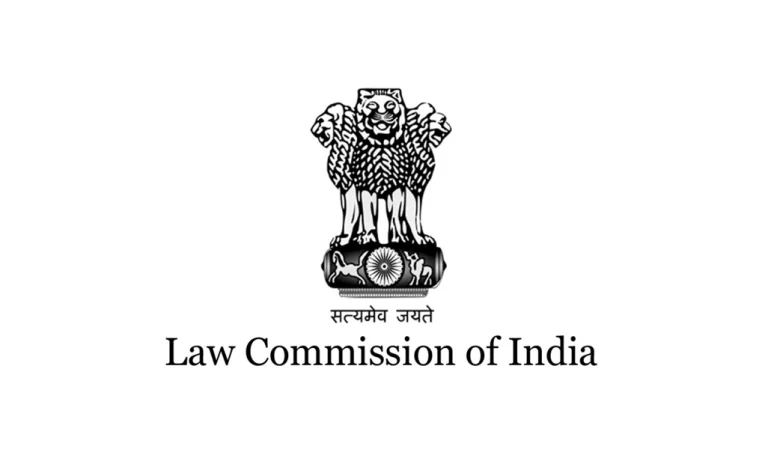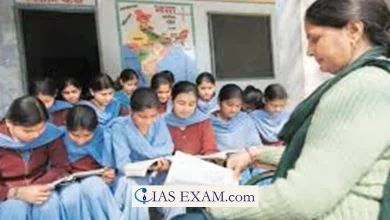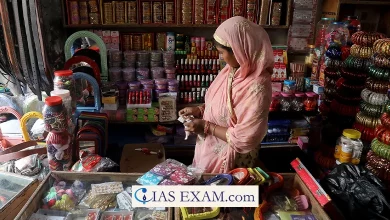Reforms in Special and Local Laws of India
[GS Paper 2 - Laws, Institutions & Constitutional Bodies]

Context – Recent legislative bills aimed at amending criminal laws in India have garnered significant attention for ushering in long-awaited reforms. However, these reforms primarily focus on one aspect of India’s complex criminal justice system.
What remains often overlooked are the extensive Special and Local Laws (SLLs) that encompass some of the most critical offences and procedures.
Special and Local Laws (SLLs) and their Significance
- Cognizable crimes are categorized either under the ‘Indian Penal Code (IPC)’ or under the ‘Special and Local Laws (SLL)’. The SLL identifies criminal activities that the state government frames for specific issues.
- In 2021, nearly 39.9% of all cognizable offenses registered fell under SLLs, according to Crime in India Statistics.
- SLLs have ignited crucial debates concerning the boundaries of the state’s power in criminalization, particularly with respect to individual rights and liberties.
- SLLs, like the Unlawful Activities (Prevention) Act, 1967 (UAPA) and the Maharashtra Control of Organised Crime Act, 1999 (MCOCA), suffer from ambiguous and vague definitions of offenses, raising concerns about their application to civil or regulatory wrongs.
Challenges Posed by Archaic Special and Local Laws
- Legal Complexity: The biggest challenge of SLLs is their sheer complexity. The laws often contain ambiguous provisions, varying interpretations, and a lack of uniformity. This complexity can lead to lengthy legal disputes and hinder the timely delivery of justice.
- Gender Inequality: Many SLLs perpetuate gender discrimination. For example, traditional personal laws have been criticized for treating women unfairly in matters of inheritance and divorce. These disparities persist despite constitutional guarantees of gender equality.
- Administrative Burden: The vast number of SLLs complicates administrative and judicial procedures. Government agencies and the judiciary must contend with multiple, sometimes conflicting, laws, making it harder to provide efficient and equitable services to citizens.
- Inter-Community Conflicts: The existence of multiple legal systems can sometimes result in inter-community conflicts. It is not uncommon for disputes to arise when the personal laws of one community clash with those of another. This can create social tensions and pose challenges for the legal system.
Imperatives for Reform
- Clarity and Legal Certainty: Reforms in SLLs are essential to bring clarity and legal certainty. Ambiguous and vague provisions need to be reformed to ensure that individuals understand their rights and obligations under the law.
- Gender Justice: A critical imperative for reform is achieving gender justice. SLLs should be modernized to eliminate discriminatory practices and uphold the principles of gender equality enshrined in the Indian Constitution.
- Streamlined Legal System: Modernizing SLLs should aim to simplify and consolidate them. This would lead to a more streamlined legal system, making it more accessible and efficient for all. Reducing the administrative burden on the government and the judiciary would expedite the delivery of justice.
- Uniformity and Consistency: A comprehensive reform agenda should focus on harmonizing conflicting provisions and addressing overlapping jurisdictions. This will minimize legal disputes and provide uniformity in the application of the law across the nation.
Potential Benefits of Reforms
- Enhanced Legal Access: Reforming SLLs will enhance legal access for individuals and communities, ensuring that they can navigate the legal system more effectively. This is particularly crucial for marginalized groups who may not be aware of their legal rights and entitlements.
- Gender Equality: Modernizing personal laws within the SLL framework will contribute to gender equality. It would help eliminate discriminatory practices and promote the rights of women in matters of marriage, divorce, and inheritance.
- Administrative Efficiency: Streamlining and simplifying SLLs would make the administration of justice more efficient. This, in turn, would reduce the administrative burden on the government and the judiciary, leading to faster resolution of cases.
- Legal Harmony: Reforms can lead to legal harmony, ensuring that the principles of justice, equality, and the rule of law are upheld consistently across the country. This is vital for maintaining the unity and integrity of the legal system.
Conclusion
Reforming special and local laws in India is not merely a matter of administrative convenience, but a fundamental necessity to uphold the principles of justice, equality, and the rule of law. While cultural and regional diversity is a strength of the country, it should not come at the cost of legal uncertainty, discrimination, and administrative inefficiency. Reforms should be undertaken with the objective of promoting clarity, equity, and access to justice.
SOURCE: The Hindu





.png)



